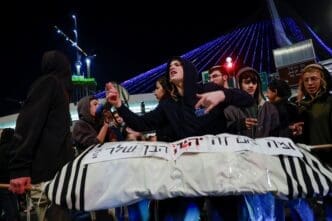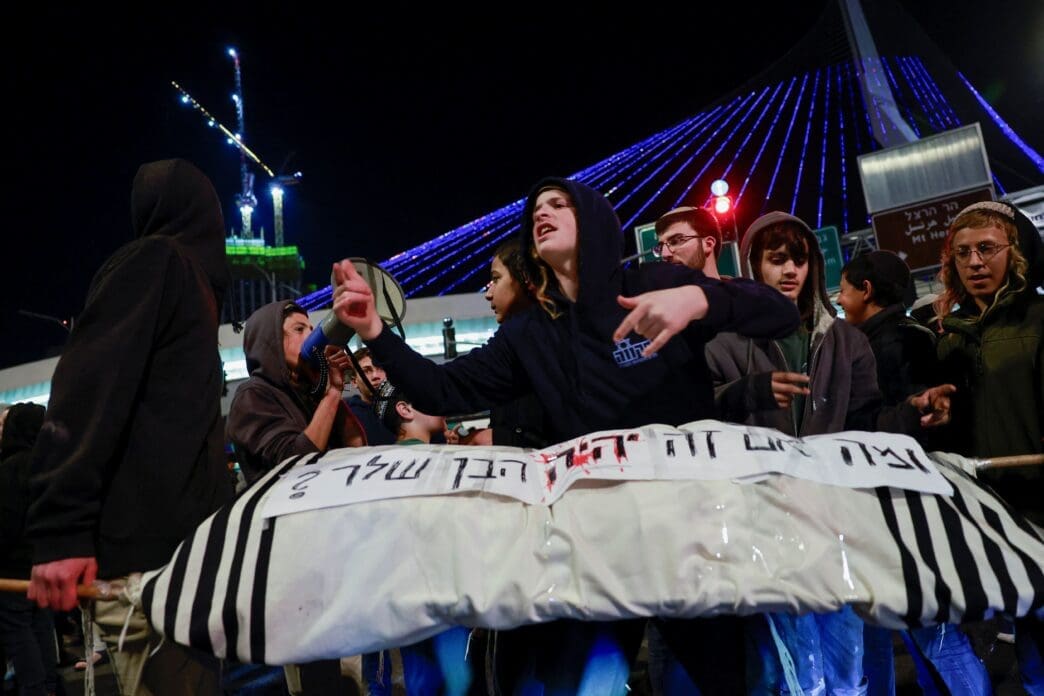DOHA/CAIRO/JERUSALEM – Israel has postponed the approval of a ceasefire agreement with the Palestinian militant group Hamas for the Gaza Strip and the release of hostages. However, the United States remains optimistic that the deal will be implemented as scheduled on Sunday.
In Gaza, Israeli airstrikes continued unabated, with Palestinian authorities reporting at least 86 fatalities on the day following the announcement of the truce.
Citing ongoing divisions within the Israeli government, meetings that were expected to take place on Thursday to vote on the ceasefire agreement were delayed, with Israel blaming Hamas for the hold-up. Reports suggest that the cabinet may vote on the deal on either Friday or Saturday, and it is anticipated that the agreement will receive approval.
White House spokesperson John Kirby stated that the U.S. believes the agreement is still on track and a ceasefire in the 15-month-long conflict could commence “as soon as late this weekend.” He emphasized, We are seeing nothing that would suggest this will be derailed at this time, in an interview on CNN.
A group representing families of Israeli hostages in Gaza, 33 of whom are expected to be released in the first phase of the agreement, urged Prime Minister Benjamin Netanyahu to expedite the process. “For the 98 hostages, each night is another night of terrible nightmare. Do not delay their return even for one more night,” the group declared in a statement reported by Israeli media.
Earlier, U.S. Secretary of State Antony Blinken noted there was a loose end in the negotiations that needed to be addressed. A U.S. official, speaking anonymously, indicated that the issue revolved around the identities of certain prisoners Hamas requested for release. U.S. envoys were in Doha working alongside Egyptian and Qatari mediators to resolve this matter.
Hamas senior official Izzat el-Reshiq reaffirmed the group’s commitment to the ceasefire deal.
VOTE EXPECTED FRIDAY OR SATURDAY
In Gaza, initial joy over the proposed truce soon turned into sorrow and outrage due to the intensified Israeli bombardment following the truce announcement on Wednesday. Tamer Abu Shaaban mourned his young niece, who was killed by missile shrapnel while playing in a schoolyard where the family sought refuge, asking, “Is this the truce they are talking about? What did this young girl, this child, do to deserve this?”
Israel’s acceptance of the deal requires official approval from the security cabinet and the government. Netanyahu postponed the vote, accusing Hamas of making last-minute demands. His office stated, “The Israeli cabinet will not convene until the mediators inform Israel that Hamas has accepted all elements of the agreement.”
Israeli media anticipated that the cabinet would vote on the deal by Friday or Saturday, but the Prime Minister’s office did not comment on the timing. Political analysts speculated that if approval is not finalized until Saturday, the start of the ceasefire, set for Sunday, may also be delayed.
Hardliners within Netanyahu’s government, who argue that the war should continue until Hamas is destroyed, expressed hopes of halting the deal. However, a majority of ministers were expected to support the agreement, ensuring its approval.
In Jerusalem, some protesters marched carrying mock coffins to oppose the ceasefire, blocking roads and clashing with police, while others obstructed traffic until security forces intervened.
The ceasefire accord, which emerged on Wednesday following mediation by Qatar, Egypt, and the U.S., outlines a six-week initial ceasefire and the gradual withdrawal of Israeli forces. In exchange for hundreds of Palestinian prisoners held in Israel, dozens of hostages taken by Hamas, including women, children, and the elderly, would be released.
This deal is expected to pave the way for a significant increase in humanitarian aid to Gaza, where the majority of the population has been displaced and is facing severe hunger, illness, and cold.
Israel’s military campaign in Gaza began after Hamas militants attacked Israeli border communities on October 7, 2023, resulting in the deaths of around 1,200 soldiers and civilians and the abduction of over 250 hostages, according to Israeli sources.
If successful, the ceasefire would put an end to fighting that has devastated much of densely populated Gaza, claimed over 46,000 lives, and displaced most of its pre-war population of 2.3 million, according to Gaza officials.








